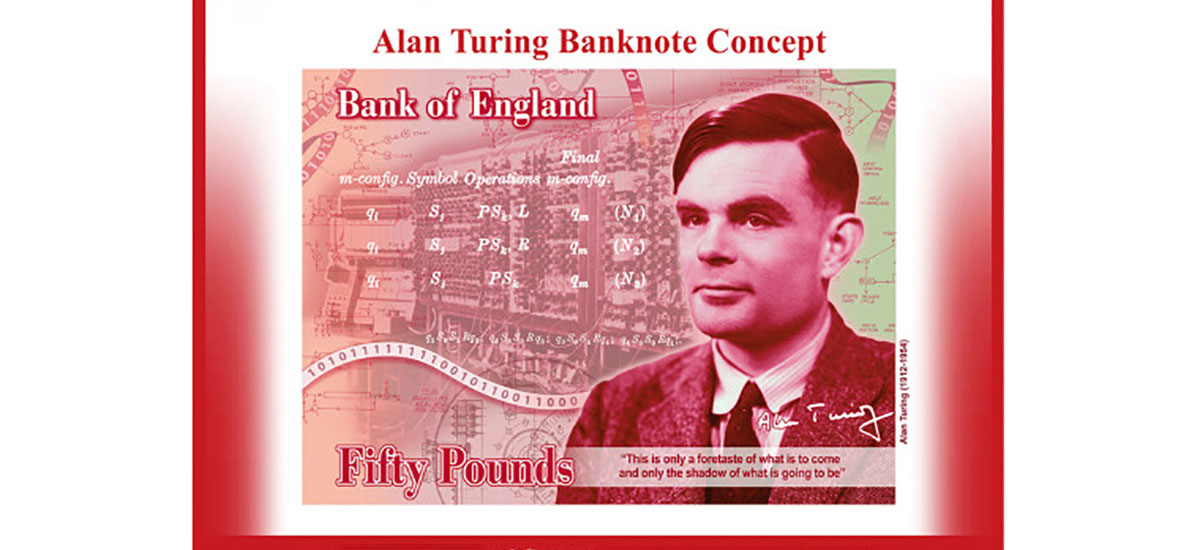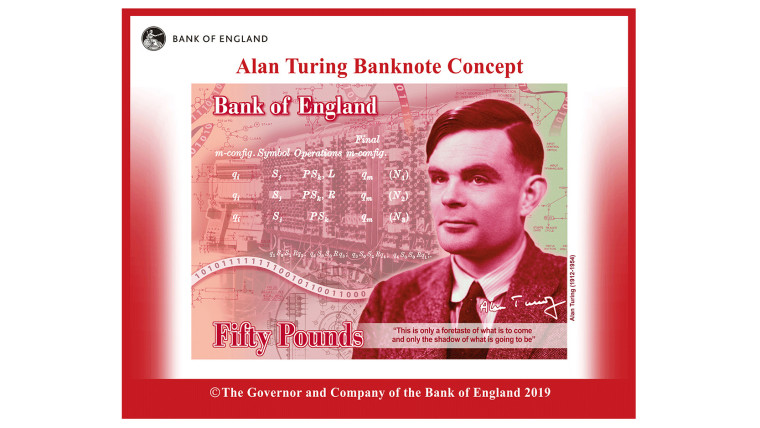Alan Turing will appear on the bank of the country that contributed to his suicide

A brilliant mathematician who influenced the fate of World War II, received a great homage from his homeland. It will appear on the new 50-pound banknote. A nice change.
The director of Bank of England, Mark Carney, solemnly announced at a news conference that Alan Turing would be the face of a new, 50-pound polymer banknote. These banknotes will go into circulation in 2021.
Alan Turing was an extraordinary mathematician whose work has a huge impact on our lives. The father of computer science and artificial intelligence, the war hero - Alan Turing and his work have far-reaching and groundbreaking effects. Turing is a colossus on whose shoulders so many stand to this day - explains Carney.
https://www.youtube.com/watch?v=r9CdqWxX1m0
Turing's candidacy was not the only proposition. Mary Anning, Paul Dirac, Rosalind Franklin, William Herschel and Caroline Herschel, Dorothy Hodgkin, Ada Lovelace and Charles Babbage, Stephen Hawking, James Clerk Maxwell, Srinivas Ramanujan, Ernest Rutherford and Frederick Sanger competed with him.
Who was Alan Turing?
It's a shame not to know. Fortunately, I can help you refresh the memory. Turing was the designer of the so-called Turing bomb, and thus the device used to break the Enigma code - the encryption methods used by Germany during the Second World War. Turing's bomb, it is worth noting, would not be possible without previous efforts of Polish cryptanalysts.
Turing also designed one of the first electronic programmable computers. He was also the first to consider the concept of artificial intelligence and the definition of this phrase. He is also the author of the famous Turing test, to be able to determine relatively definitively whether a machine - and therefore a computer - is intelligent . He also has a significant contribution to the development of mathematical biology interested in studying the morphogenesis process.
From his genius, his sexual orientation was more important for the British.
Alan Turing was gay, which according to the then British law was a crime. His associates turned a blind eye to clues suggesting the orientation of the genius mathematician, but he finally came up - long after the war, in 1952.
Turing was accused of violating public morality, he could only choose his punishment. He could choose a prison or hormone therapy, which basically boiled down to chemical castration. He chose the second option. However, avoiding a prison cost him a career: Turing lost access to confidential information and could no longer work on the construction of the first computers.

Turing lasted two years. On June 7, 1954, he locked himself in his bedroom and committed suicide by accepting a lethal dose of cyanide. His death, however, contributed to the revision of the draconian British law (the criminality of homosexual acts was finally abolished in this country in 1964), although it was not until 2009 that the British government gave Prime Minister Gordon Brown apologies for how he treated Turing. In 2013, the mathematician was posthumously pardoned by Queen Elisabeth II.
Alan Turing will appear on the bank of the country that contributed to his suicide
Comments
Post a Comment